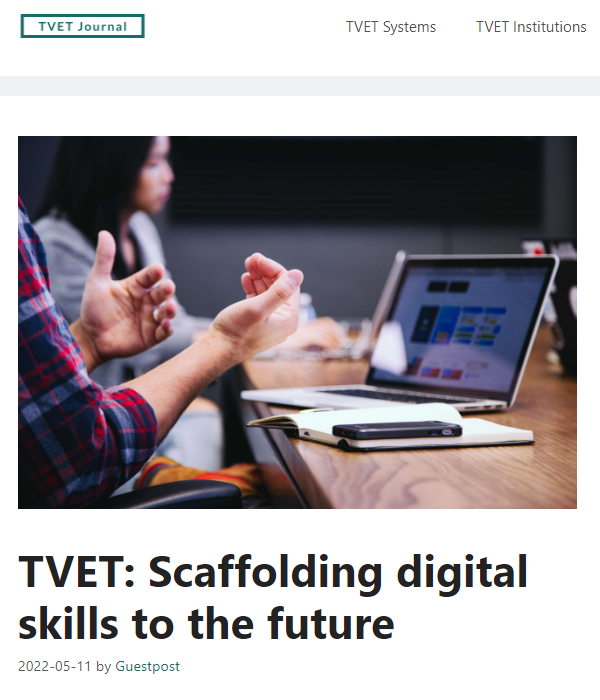
Le Centre International UNESCO-UNEVOC: Qui nous sommes | Ce que nous faisons | Nous rejoindre | Nous contacter
Le Réseau UNEVOC: En savoir plus sur le Réseau | Répertoire du Réseau UNEVOC
Espace Membres: Tableau de bord du Centre UNEVOC
Domaines thématiques: Inclusion et jeunes | Innovation et avenir de l'EFTP | Engagement du secteur privé | Les ODD et l'écologisation de l'EFTP
Nos programmes et projets clés: BILT: Connecter innovation et apprentissage | Renforcer la résilience de l’EFTP | Programme pour le leadership en EFTP | Journée mondiale des compétences des jeunes
Activités passées: Réponse COVID-19 | i-hubs: Former des pôles d'innovation | Forums mondiaux de l'EFTP | Conférences virtuelles | YEM Portail de connaissances
Nos services et ressources: Publications | Forum TVET | Profils nationaux d'EFTP | Glossaire TVETipedia | Pratiques prometteuses | Toolkits for TVET Providers | Formation à l’entrepreneuriat
Journal et événements: Grandes Manifestations EFTP | Journal UNEVOC

| Author/s: | Glenda Crosling, Graeme Atherton, Angela Lee Siew Hoong, Supervised by: Sarah Elson-Rogers |
| Éditeur: | TVET Journal |
| Publié: | 2022 |
While the key role of digital competence is well-acknowledged in meeting the needs of Industry 4.0 and the new demands of the digital economy and society, COVID-19 has exposed, with urgency and intensity, the importance of building digital competence to sustain societal operations. Education is no exception. In technical and vocational education and training (TVET), teachers’ and students’ digital skills have been fundamental to educational continuation. With online education remaining integral to educational offerings post-COVID-19, the issue of digital skills continues to be highlighted as well as the need for it to be integrated in curricula. But given the wide spectrum of TVET’s educational programmes, digital competence is correspondingly broad; challenging questions remain about the proficiency levels necessary for effective TVET education and learning outcomes.
In this scenario, multiple resources by way of digital frameworks are available online to help TVET teachers and consequently their students address the digital needs which underpin successful educational experiences. These can also guide digital skills development. A project commissioned by UNESCO-UNEVOC to the Centre for Higher Education Research at Sunway University in Malaysia, in developing a repository for information and debate on digital skills and competency for TVET, has identified relevant frameworks, some of which are featured in this article. The key features of these frameworks as relevant to TVET educators are discussed.